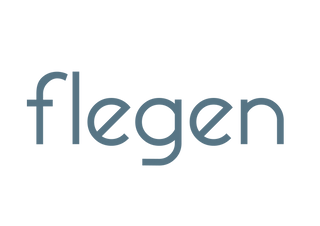Breastfeeding plays a vital role in your baby’s early development. What you eat directly influences the composition of your breast milk and, ultimately, your baby’s health. While many foods and drinks are beneficial for both mother and baby, certain substances can affect milk quality, as well as your baby’s digestion, sleep, and overall well-being.
In our previous blog on 4 Foods to Avoid While Breastfeeding, we discussed common foods and beverages that can impact a mother’s milk supply and a baby’s health. In this guide, we’ll take a closer look at additional foods and substances to avoid, as they may compromise the quality of your breast milk and your baby’s comfort. Let’s help you make informed choices for a healthier breastfeeding journey.
Common Foods and Substances to Avoid When Breastfeeding
High-Mercury Fish
Certain types of fish, such as shark, swordfish, king mackerel, and tilefish, are high in mercury. This heavy metal can build up in your body and pass through breast milk, potentially harming your baby’s developing nervous system. Mercury exposure has been linked to developmental delays, learning difficulties, and other neurological issues.
Safer Alternatives: Opt for fish low in mercury, such as salmon, sardines, and cod, which are rich in healthy omega-3 fatty acids that are beneficial for both you and your baby’s development.
Spicy or Gassy Foods
Foods like onions, garlic, broccoli, cabbage, and beans can cause discomfort and gas in some babies. These foods might also alter the flavour of breast milk, making it less palatable for your little one, which could potentially affect feeding. In some cases, they may also cause fussiness or digestive issues.
Pro Tip: While some babies may not react to these foods, others may. It’s important to observe your baby’s response after consuming these foods and adjust your diet accordingly if needed.
Highly Processed Foods
Highly processed foods, such as fast food, chips, sugary snacks, and foods loaded with unhealthy fats and additives, offer little nutritional value. These foods may negatively impact the quality of your milk and may reduce your energy levels, affecting your overall health and breastfeeding experience. Furthermore, a diet high in sugar and fats can also impact your mood and milk supply.
Better Alternatives: Choose whole foods like fresh fruits, vegetables, whole grains, and nuts. These nutrient-dense options will help you maintain your energy and provide the essential vitamins and minerals needed to support milk production.
Allergenic Foods
Common allergens such as peanuts, tree nuts, eggs, and dairy can pass through your breast milk and cause allergic reactions in some babies. Symptoms may include rashes, colic, or digestive upset. If your baby exhibits signs of an allergy, it may be necessary to eliminate these foods from your diet.
Consultation Tip: It’s advisable to consult with a healthcare professional before making any major dietary changes, especially when it comes to eliminating whole food groups. A healthcare professional or lactation consultant can guide you on how to safely adjust your diet while ensuring your baby is not missing out on essential nutrients.
Can Breastfeeding Mothers Drink Coffee?
One of the most common questions among new mothers is, “Can breastfeeding mothers drink coffee?” While it’s tempting to indulge in a cup of coffee to keep your energy up, it’s important to be mindful of caffeine intake during breastfeeding. Excessive caffeine consumption can lead to irritability or disrupted sleep patterns in your baby.
While a small cup of coffee might not cause any issues, it's best to limit caffeine to prevent it from affecting your baby’s well-being. If you enjoy your coffee, consider switching to a decaffeinated option or herbal teas for a safer alternative.
Lactation Foods to Include in Your Diet
To support your breastfeeding journey, it’s just as important to know what foods to include in your breastfeeding diet as it is to understand the ones to avoid. Incorporate lactation foods such as oats, flaxseeds, almonds, and leafy greens to promote milk production. These foods are rich in essential vitamins, minerals, and healthy fats that support both your health and your baby’s growth.
Nurturing a Healthy Breastfeeding Journey

By being mindful of the foods and substances you consume during breastfeeding, you ensure that your breastfeeding diet is not only safe but also beneficial for both you and your baby. Avoiding high-mercury fish, gassy foods, and processed snacks, and being cautious with caffeine, allergens, and alcohol can help support your baby's health and comfort.
Beyond diet, nurturing a positive breastfeeding experience involves establishing a good routine and taking care of your own well-being. If you're wondering how to establish a good breastfeeding routine and foods to increase breast milk, consider seeking guidance from lactation specialists who can provide personalised advice and breastfeeding courses. Additionally, don't forget the importance of self-care. Incorporating a gentle breastfeeding skincare routine can help you feel more comfortable and confident during this time. For tailored support, consult a healthcare professional or lactation specialist in Singapore to ensure you're making the best choices for your breastfeeding journey.


